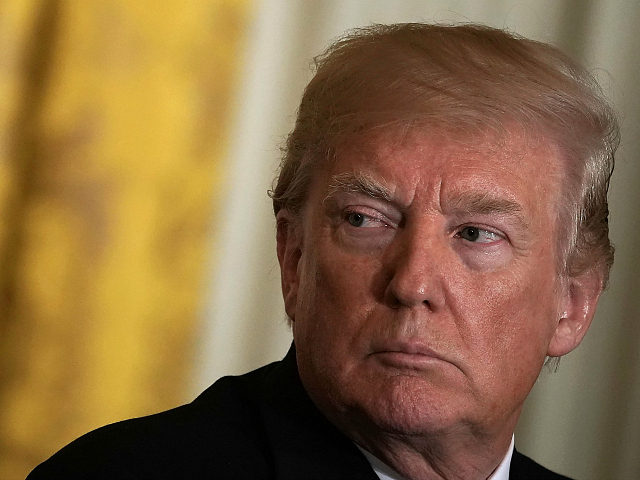The White House and House Republicans reportedly have discussed whether to use an arcane budget rule to cut spending passed through the omnibus spending bill.
House Majority Leader Kevin McCarthy (R-CA) reportedly discussed with White House officials whether they should use an arcane provision in the Congressional Budget and Impoundment Control Act of 1974, commonly known as the Budget Act, to stop already appropriated spending provisions.
Using this rule, the president can send a message to Congress, stipulating specific funds that the administration wants to eliminate. President Donald Trump can group multiple annulments to Congress; the legislative branch would then have 45 days to approve all, none, or part of the president’s request to impound federal spending.
The Senate can pass the budget impoundment with only a simple majority through Congress’s upper chamber, making the spending cuts far easier to pass than a traditional omnibus or spending bill. Passing such a budget cut, however, would remain difficult for the Senate; Republicans hold a 51-seat majority in the Senate.
President Trump reluctantly signed the $1.3 trillion, 2,232-page omnibus in March, citing the need for increased military spending as a matter of national security. To avoid future spending debacles, Trump called for an end to the Senate’s filibuster rule, which would allow for a simple 51-vote majority to pass legislation in the legislative chamber. The president also called for a “line-item veto” which would allow him to veto specific provisions from larger bills without opposing the legislation in its entirety.
Kimberly Strassel, a writer with the Wall Street Journal, explained:
They can sweeten the deal by reminding members that a successful rescission allows them not only to brag that they are working on spending-restraint promises, but to highlight the Democratic role in pumping up the original numbers, and to emphasize specific Democratic outlays that they stopped. Wholesale cuts in domestic agencies—like the EPA or the Education Department—would also put them closer in line with Mr. Trump’s proposed budget, a huge winner with conservative voters.
Senate Minority Leader Chuck Schumer (D-NY) cheered the passage of the omnibus spending bill last month, arguing, “We’re able to accomplish more in the minority.”
Sen. Schumer praised the omnibus spending bill for including funding for the Gateway Bridge project as well as increased funding for the National Institute of Health (NIH). Breitbart News reported that the omnibus spending bill contains language that bars funding for a southern border wall; the bill also includes provisions that would expand the H-2B visa worker program, which would reduce pressure to offer Americans higher wages.
House Freedom Caucus chairman Mark Meadows (R-NC) lamented in an interview with Breitbart News Daily on Tuesday that the “Senate Democrats seem to be calling most of the shots.”
Strassel notes in her op-ed that Republicans will not be able to insert policy riders into the budget-cutting resolution, such as funding the border wall, however, the bill will allow the GOP to defund increases in spending for the Environmental Protection Agency (EPA) as well as Schumer’s prized Gateway Bridge project.
Strassel concluded, “But in a Congress that has little left of substance it is willing to tackle in a midterm year, this is a fight worth having. Adding a substantial spending victory to tax reform, deregulation and a growing economy could make the difference in November.”

COMMENTS
Please let us know if you're having issues with commenting.